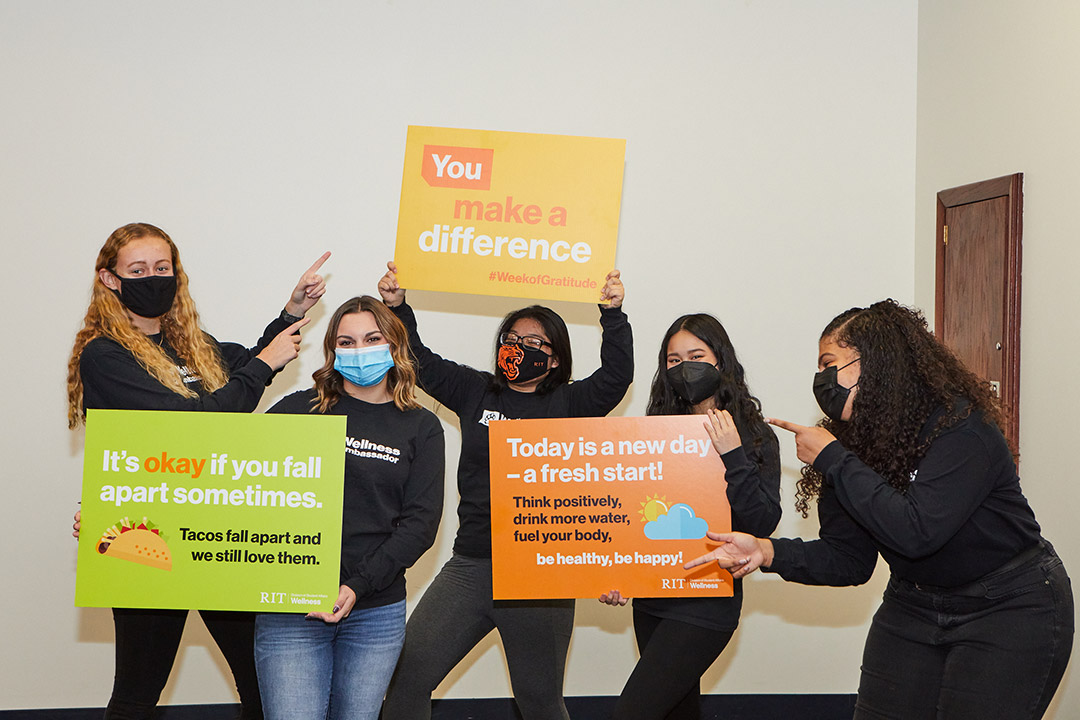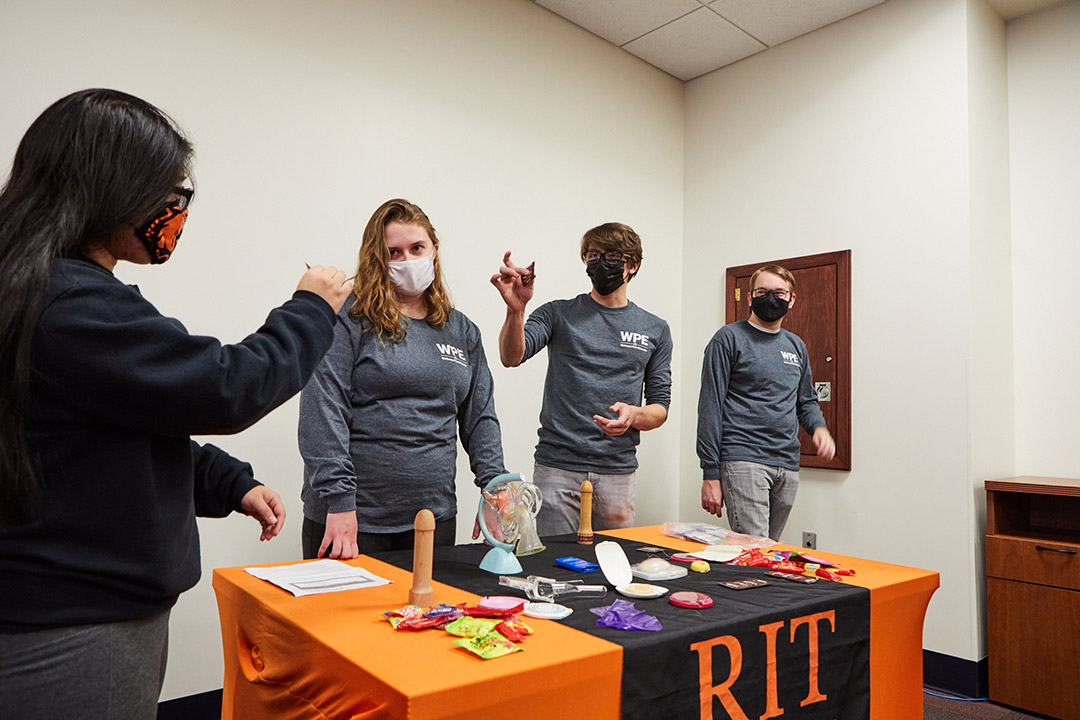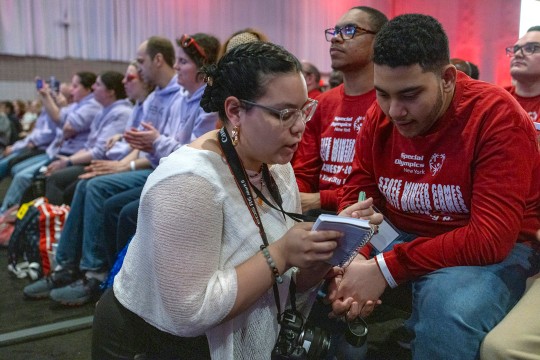Student peers promote well-being with encouragement
Healthy choices encouraged through education, awareness, and giveaways
Keanu Pagano
Members of the Student Wellness Ambassadors Team pop up around campus to encourage their fellow students to take a moment out of their day to perform a health-related activity.
Messages about staying healthy are being conveyed to students at Rochester Institute of Technology by people students can easily connect with: their peers.
“The research supports that having these conversations outside of a classroom, with people students can easily relate to, allows students to learn best from them,” said Colleen Holcomb, a health promotion specialist in Wellness. “It just resonates with them differently when the discussions about behavior change and harm reduction strategies come from other students.”
New this year is the Student Wellness Ambassadors Team, the next generation of the RIT Ready Crew which was originally created to educate students as a response to the COVID pandemic by reminding them to wear masks, wash their hands frequently and keep distances when possible.
The Student Wellness Ambassadors Team now encourages students to take a moment out of their day to perform a health-related activity, such as stress relief, taking a break, even making essential oil rollers, which emit smells that can evoke feelings of relaxation.
“Our job is to spread happiness and awareness,” said Grace Gerber, a fourth-year medical illustration major from Shawnee, Kan., and a Student Wellness Ambassador. She’ll walk around campus or be stationed at events with other ambassadors holding signs of encouragement and reminders for students to stay healthy while actively engaging with students about wellness-related topics that are occurring at the event or happening that week.
“We set up our table, check students in, and tell them a little bit about mental health awareness,” Gerber said. “Mainly we’re here to put smiles on people’s faces and cheer them up.”
The team members also have cutouts of RIT President David Munson and RIT mascot RITchie that students may pose with. Their signs give messages encouraging students to think about their mental wellness such as “You Make a Difference,” “Today is a New Day,” “Drink More Water,” and “It’s Okay to Fall Apart Sometimes. Tacos Fall Apart Sometimes and We Still Love Them.”
Keanu Pagano
Wellness Peer Educators are trained students who connect with their fellow students to talk candidly about subjects like alcohol and other drug education, sleep hygiene, sexual health, mental wellness, stress management, suicide prevention, how to party safely, and social connectedness.
The team also hands out snacks and “little goodies,” including rubber ducks with designs on them, pencil bags, hand sanitizer, Goldfish crackers, popcorn, even “play it safe” kits with condoms and lubricant.
The team also helps out with collaborative programs such as Bow Wow Wellness, where therapy dogs visit campus once a month to interact with students.
“I feel it brightens people’s day,” Gerber said.
Another successful initiative focusing on student well-being are Wellness Peer Educators. Launched in 2019, the program trains students to connect with their fellow students to talk candidly about subjects like alcohol and drug education, sleep hygiene, sexual health, mental wellness, stress management, suicide prevention, how to party safely, and social connectedness.
The student educators, five to 10 per semester, all go through training provided by the National Association of Student Personnel Administrators. Once completed, students host weekly workshops or are available at interactive information tables set up at events on campus.
Although the peer educators are trained to talk about tips and strategy, they don’t do counseling, Holcomb said.
“We do a program related to alcohol awareness,” she said. “We focus on harm reduction strategies. We want them to make informed choices. So we educate them on what is a perceived serving size versus what is an actual serving size, how do they correlate to blood alcohol content or hangovers, and how drinking can impact their academic performance.”
The peer educators are trained in outreach strategies and communication skills including bystander intervention, active listening and open-ended questioning to help promote dialogue about wellness topics. And they are able to refer students to health services that offer higher levels of care if needed.
Holcomb said the educators hosted 78 programs for students in the past academic year, partnered with other groups on campus 25 times and offered 23 activity workshop programs. More have been planned this year.
The information is passed along on social media channels, in campus groups, or at informational tables in public places, such as the Fireside Lounge, in quads, or the Student Alumni Union lobby. The Student Wellness Ambassador Team and the Wellness Peer Educators hold Wellness Wednesday and Friday Fun Day events weekly to promote stress relief, social connection and more.
Students who may be interested in joining SWAT or the Wellness Peer Educators program for the fall semester may apply by March 14.














